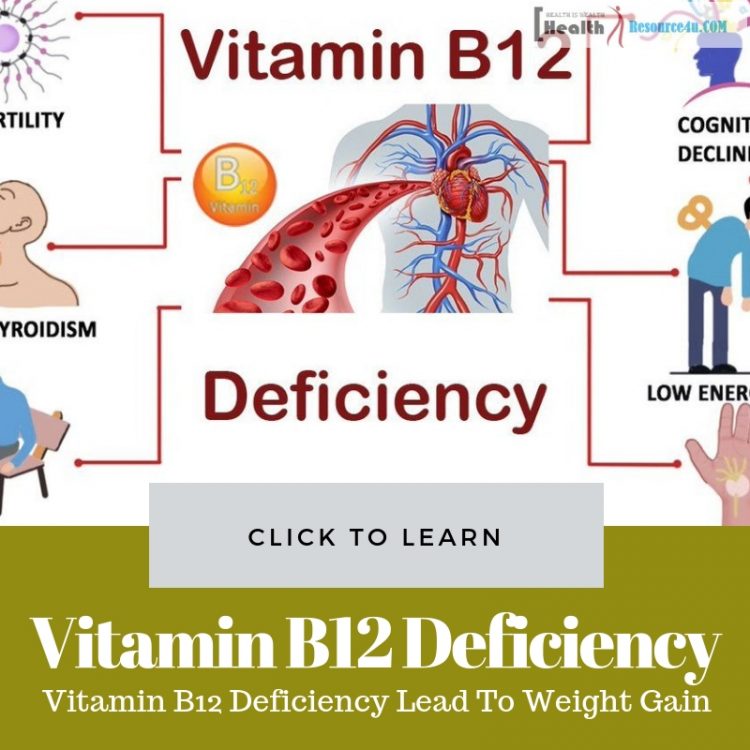Do Centrum vitamins make you gain weight It has long been known that many micronutrients are essential for life at low concentrations but become toxic at high concentrations. The effect of vitamins on weight gain also follows this Bertrand's rule. We may take the weight-gain effect of niacin as an example. Jiang and colleagues investigated the effects of dietary supplemental nicotinic acid at different doses (0, 30, 60 and 120 mg/kg diet) on the growth performance of chicken. Ivers and Veum found that among the doses used (6, 10, 14, 18, 22 and 44 mg/kg diet with adequate Trp), 14 mg of niacin/kg produced maximum weight gain in growing pigs.
Shibata et al studied the effect of nicotinamide at doses of 0, 60, 1000 and 5000 mg/kg diet on rat weight gain. Their result showed that nicotinamide increased the food intake of rats, especially in the groups fed diet containing 60 and 1000 mg/kg of nicotinamide. The highest weight gain was observed at 60 mg/kg, while high-dose nicotinamide (5000 mg/kg diet) led to an inhibition of weight gain at the early stage of exposure due to its toxicity.
These animal studies suggest that the supplemental dose for niacin to achieve maximum weight-gain effect may be around or less than 60 mg/kg diet. This dose is similar to that used in wheat flour fortification in some countries, e.g., the United States, Canada, Saudi Arabia and Kuwait (Table . Know that multivitamins shouldn't take the place of whole foods and a healthy diet.
Fresh produce, lean protein, and fortified grains are chock full of natural enzymes and nutrients that you won't find in man-made vitamins. But, vitamin supplements can fill in any nutritional gaps you don't get in your diet. For instance, adult women between the ages of 19 and 50 need 18 milligrams of iron each day, while men only need about 8 mg, according to dietary guidelines from the National Institute of Medicine. If your diet doesn't contain iron-rich foods like red meat, fortified grains, or beans, a multivitamin may be a good way to get the recommended daily intake. Thus, those who use wheat flour products as staple foods possibly consume a higher amount of synthetic B vitamins. Vitamin-fortified foods are cheaper than fresh and natural foods in developed countries, which may lead to a higher intake of synthetic vitamins in low SES groups than in high SES groups in these countries.
In contrast, in developing countries, those who live in urban areas may consume more fortified foods than those who live in rural areas. Infant formula milk (Table 3) and children foods (e.g., ready-to-eat cereals) are highly fortified with vitamins. Thus, infants fed formula milk and children are likely to have excess vitamin intake, as reported in the literature[51-54]; and Different tolerance to fortified foods among population groups.
Vitaminsand minerals serve crucial functions in almost all bodily processes and must be obtained from foods or supplements, as our bodies are unable to make them. In this article, common drug interactions with vitamins and minerals are discussed, along with suggestions on how the pharmacist should manage these interactions. It is interesting that some overweight children become overweight adults, while others do not. One possible explanation for this may be a changing vitamin intake during the lifetime.
Whether obese infants become obese children and then obese adults may to a large degree depends on the intake of vitamins after weaning. In theory, infants, even with normal body weight, may become obese adults if they always consume high vitamin-fortified foods (e.g., refined grains) after weaning. We therefore recommend that the role of vitamin intake be taken into consideration in the study of the relationship between infant obesity and later obesity. Indeed, consuming good quality diets is always desirable, and this is particularly important during the COVID-19 pandemic. Added fats should be primarily liquid oils such as olive, canola, or soybean oil.
Such a diet will provide appropriate amounts of healthy macronutrients and essential minerals and vitamins. Eating high-quality sources of protein, fat, and carbohydrate can help maintain a healthy weight and good metabolic state; this is not a time for highly restrictive, crash diets. If someone does develop a COVID-19 infection, eating enough of these healthy calories to prevent unintended weight loss is important.
Adequate amounts of minerals and vitamins provided by a healthy diet helps to ensure sufficient numbers of immune cells and antibodies, which are important as the body mounts a response to infections. As mentioned above, low SES groups in developed countries but high SES groups in developing counties may have a high synthetic vitamin intake from fortified foods. This may explain the findings that obesity is more prevalent in low SES groups in developed countries[6-10] but in high SES groups in developing countries[10-12,55]. Studies have demonstrated that formula-fed infants have a higher plasma level of vitamins compared with human milk-fed infants[51-53]. It is known that formula feeding[65-67] and micronutrient-fortified human milk feeding can lead to rapid infant weight gain, a known major risk factor for children developing obesity[70-72]. Therefore, excess vitamin intake may mediate the link between formula feeding and childhood obesity.
People should monitor weight gain during increased vitamin intake. During some instances, a sudden step-up may impact the body's system to maintain a healthy weight over a longer period. Similar to a "crash" diet approach to lose weight, one should be careful when gaining weight too fast. The problem starts when attempting extreme measures to gain weight with supplements. It may not present a sustainable weight management approach. Recently, it has been suggested that changes in the global food system may play a role in the increased prevalence of obesity.
If this is the case, the global food system must have sharply changed in the 1970s-1980s. This led to a nationwide increase in the consumption of many vitamins, especially fat synthesis-promoting B vitamins[21-24], including B1 , B2 , B3 and B6, in many countries[18-20]. Thus, there is a possibility that the food fortification-induced high vitamin intake may be related to the sudden increase in the prevalence of obesity in the 1970s-1980s. Indeed, emerging evidence suggests that this food fortification-induced excess vitamin intake might play a major role in the increased prevalence of obesity. In this review, we will discuss the cause of increased vitamin intake and its possible role in obesity, as well as the obesity disparities among countries and groups within countries. There are many different types of drug interactions with vitamins and minerals, ranging in severity and significance.
Patients may not think to share information with their pharmacist about the vitamins and minerals they take, or they may feel the substances are harmless and irrelevant to their medication regimen. Because of the likelihood of an interaction, pharmacists should question patients not only about the drug allergies they have but also about the vitamins and minerals they ingest daily. Although this article did not discuss herbal products and other nutraceuticals, use of these products is important to document as well. Without this information, pharmacists cannot provide the necessary screening for interactions. Information about the use of vitamins, minerals, herbal products, and other nutraceuticals should be documented in patients' records for future reference.
For example, the intake of fresh vegetable-derived vitamins might be high in summer but low in winter. However, through evolution, humans have adapted to this seasonal variations in vitamin intake by developing mechanisms to maintain the vitamin homeostasis. While the intake of vitamins is higher in summer, their elimination through sweat and sebum[27-30] may also increase because the secretion of sweat and sebum is higher in summer than in winter. Moreover, the body can store a certain amount of vitamins when the supply is adequate, which can be used for some time when the intake is inadequate.
For example, it will take several months before the first symptoms of vitamin C deficiency appear in a vitamin C deprivation condition. From this point of view, it seems unnecessary to take vitamins everyday, although estimated daily average requirements and the recommended dietary allowances are given (Table . Whole wheat bread is a healthier option when compared to flour bread. Though whole wheat bread is used for weight loss, it can also cause weight gain when consumed in enough amount. You can have whole wheat bread pudding or sandwiches to gain weight considerably over a period of few weeks.
Obesity, a state of excessive accumulation of fat in the body, is a major risk factor for many diseases, such as type 2 diabetes and cardiovascular disease. In the 1970s and 1980s, a rapid increase in the prevalence of obesity occurred almost simultaneously in many developed countries. Since then, developing countries have also experienced a rapid increase in obesity rates. It is worth noting that the prevalence of obesity differs greatly among countries as well as groups within a country[8-12]. It is more prevalent among those with low socioeconomic status in developed countries[6,8-10] but with high SES in developing countries, especially at their early stage of development[10-12].
Interestingly, compared with breast-fed infants, formula-fed infants have higher rather than lower levels of energy expenditure and are more at risk for obesity in later life[15-17]. Therefore, the rapidly increased prevalence of obesity cannot be simply explained by genetic factors or decreased energy expenditure. Yes, vitamins can easily lead to weight gain and this is very much true when the vitamin intake is not backed by medical supervision and lacks a scientific approach. Though there are only a few researches that are supporting this case, the truth is unchanged.
These studies have found that vitamin fortification, intake of synthetic vitamins, and lessened vitamin elimination lead to quick weight gain. This chance is very high in fortified nations, women , and people with less Socio-Economic Status . However, one should understand that the mere taking of vitamins does not lead to weight gain. There may be many other factors such as improper food, lack of physical activity, and health issues such as less metabolism which may trigger more weight gain with the intake of vitamins. Since the late 1930s, when synthetic vitamins were first used, the human being has experienced the largest growth in vitamin intake in human history. It is possible that excess vitamins, especially B vitamins, may contribute to the development of obesity.
Vitamin-rich formulas and food fortification with vitamins may, to a large extent, be responsible for the increased prevalence of obesity over the past several decades. Staple food fortification may be of great harm because it leads to a sustained high vitamin intake. Therefore, given that there has been a significant increase in vitamin supply from natural sources, it is necessary and urgent to review and modify the standards of vitamin fortification. Thus, food fortification with niacin in these countries might have induced a maximum weight gain effect. In this case, further supplementation with niacin or niacin-containing multivitamin may offset the weight gain effect due to increased toxic effects, such as hepatotoxicity[ ] and oxidative tissue damage.
This may account for the observations that further multivitamin supplementation in the United States and Canada or large-dose niacin treatment for dyslipidemia (1-3 g/d) does not show weight gain. Many sugar-sweetened beverages are also supplemented with vitamins, which is also an important cause of increased vitamin intake. Since the 1950s, synthetic vitamins have been added to infant formulas. In the 1980s, the governments of most countries established minimum nutrient requirements for commercial infant formulas, resulting in a significant increase in the content of vitamins in formulas. The levels of vitamins in some formulas for premature infants are more than 20 times higher than that of human milk (i.e., about the minimum limit for nutrients) (Table . 3).
Our modern lifestyles sometimes require an intake of diverse vitamin types to ensure the upkeep of a healthy body. Many forms of nutrients and vitamins exist to supplement our food intake. Many debates exist regarding the use of vitamins and the subsequent impact on the bodily system. During many circumstances, individuals reported that vitamins could probably increase weight.
Depending on your weight goal, added vitamins can sometimes assist people in balancing dietary requirements. If a person needs to enhance their weight for health or sometimes pregnancy reasons, various vitamin types can help. These vitamin types exist in certain food groups or added supplements. Dried fruits are dates, dried figs, apricots, currants, etc. Moreover, it has a high content value of vitamins and minerals, which are necessary for overall health and building muscles.
Being high in calories, it can help in achieving the calorie surplus that is required to gain weight. However, ensure that you drink plenty of water to avoid dehydration. If you're a healthy adult, taking a multivitamin won't lower your risk of heart attack, stroke or death from cardiovascular disease. Preventive Services Task Force concluded that there is insufficient evidence to support any benefit from vitamin and mineral supplementation for the prevention of cancer or cardiovascular disease. The supplement market is a multi-million dollar business and nutritional supplements include a broad range of products.
Some are available over the counter, while others require a prescription. Some supplements have a lot of protein and calories, the nutrients that help you gain weight. There are also bodybuilding supplements, and on the other end of the spectrum, weight loss supplements.
Supplements can be for single nutrients, such as vitamin D or iron, or multiple nutrients, such as a multivitamin. Herbal products also fall under the umbrella of nutritional supplements. With today's hectic lifestyle, poor food choices or skipping meals, eating a well-balanced diet may not always be possible.
Certain lifestyle choices, stress, excessive exercise, alcohol consumption, smoking and even taking certain medications, all impact on our nutrient levels. So day-to-day, you may not be getting enough of the nutrients you need to maintain good health. This is where a daily multivitamin such as Centrum can help.
Increasingly, people use additional vitamins to assist their energy levels during the day. Sometimes society adds vitamins to their daily diets without understanding the impacts of it. If a person aims to gain weight using vitamins, the process needs to include a diet plan, exercise, and balanced eating. Weight gain with the use of added vitamins needs to include absorption of the key vitamins listed in the article. The additional intake of these vitamins via powder, liquid, or tablets needs to form part of a dietary plan. Using additional supplements provides some added support to increase muscle metabolism and enhance fat levels.
Pregnant women who already struggle with low weight numbers attempt to increase their fat levels with added vitamins. Diverse supplements on the market attempt to assist with muscle and bone growth. A person must remember that the balance between calorie intake and weight gain forms part of logical dietary thinking. If your daily intake of calories presents more than required, it changes into fat. Weight gain requires the management of certain food types and the intake of supplements that decrease metabolism. The reasons for weight gain during supplement intake comprise diverse reasons.
During many instances, the added supplements allow for an increase in energy levels. The aim of additional supplements normally relates to individuals who focus on exercising and toning. In other instances, people who genetically struggle to gain weight attempt to rectify the problem by adding nutrients. Although the article focuses on 4 vitamins that cause weight gain, the combined use with other nutrients and minerals impact the outcome. Vitamins play a significant role in keeping our bodies healthy, and the correct use of the nutrients should not create weight-increases. It becomes important to understand vitamin complexities and their diverse functions.
The use of correct food types allows for limited use of additional supplements to keep vitamin levels balances. The article below aims to provide a summary of 4 vitamin types that can assist with weight gain. It is important for pharmacists to be able to identify patients who are most at risk.
Patients with these risk factors should be targeted for interventions to prevent drug interactions with vitamins and minerals. If you're planning a surgery, be aware that some dietary supplements can interact in a harmful way with medications you need to take before, after, or during that surgery. Your health care professional may ask you to stop taking dietary supplements two or three weeks before the procedure to avoid potentially dangerous changes in heart rate, blood pressure, or bleeding risk. If you feel your body weight is being increased due to vitamin intake, decrease those vitamins. Keep an eye on the vitamins in the list of vitamins that cause weight gain to shed off additional weight.
























